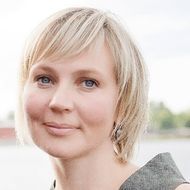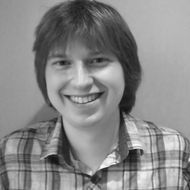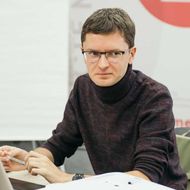What Awaits Participants of the HSE-St Petersburg Summer School 2023
From July 3 to August 11, 2023, HSE University-St Petersburg will hold its traditional Summer School, which offers participants various courses in four fields of study. International and Russian students will get a chance not only to gain new knowledge and ECTS credits, but also to enjoy the unforgettable atmosphere of summer in St Petersburg. Classes will be held both in Russian and English. Read on to find out more about what the Summer School has in store.

This year, the Summer School has prepared four main areas of training:
- Russian Language and Literature
- Political Science and International Relations
- Economics and Finance
- Media Communications and Design
The HSE-St Petersburg Summer School 2023 offers courses lasting from one to four weeks. Registration is open to students of Russian and worldwide universities, and both online and offline formats are available. The curriculum of the Summer School allows participants to combine courses in different fields of study and gain ECTS credits.
This year, the Summer School also features a cultural programme to help attendees learn more about the cultural capital of Russia and dive into the unforgettable atmosphere of the summer city on the Neva River. The participants will go on a boat trip along St Petersburg's rivers and canals and see unique works of art in the city's museums.
The wide variety of courses will help participants to deepen their knowledge in their sphere of research interest and gain fundamentally new skills by choosing a field unrelated to their specialisation.
The course 'Modern Russia: Language and Culture', taught by Alevtina Iagodova and Natalia Novak, will immerse students in the language of Pushkin, Tolstoy and Dostoevsky. The course covers all the aspects of language studies and includes constant communication with native speakers, which helps to improve the language skills of beginners and advanced learners alike. Groups will be formed according to the level of the attendees' language proficiency; the students will participate in lively discussions and do creative tasks in Russian. It is an amazing opportunity to expand your knowledge of Russian grammar and vocabulary and boost your communication skills in professional and social spheres. The first course session will take place on July 3–14, and the second will take place on July 17–28. Students will earn 3 ECTS per session.
Alevtina Iagodova, Tutor, Department of Foreign Languages

It is said that the most effective and appealing way to master a language is not just learning it, but by immersing yourself in its world, in a country where it is an official language. By choosing to study Russian in St Petersburg, you become a character in Pushkin's poetry and Dostoevsky's novels. As you walk down Nevsky Prospekt, you feel the unique spirit of the city on the Neva River, which is full of mystery and adventure.
In addition to Russian studies, the Summer School offers participants three different courses covering various aspects of political science. The courses will help students to build a comprehensive picture of the internet as a political sphere, get to know key models and theories that are implemented in the public sector, and learn more about political processes in the post-Soviet space. The course sessions start on July 3 and will grant students 3–4 ECTS.
Yury Kabanov, Academic Supervisor of the Bachelor's programme 'Political Science and World Politics'

Both of the courses that I will deliver during the Summer School are focused on the interconnection of the internet and politics. The first one—'Introduction to Digital Politics'—is more political science-based. It covers the changes happening in politics and society under the influence of digital technologies in different countries. We will mostly focus on the Eurasian region. The second course—'Challenges of Digital Governance'—is more managerial in its scope. We will discuss digital transformation in the public sector and the challenges that follow from it. The emphasis is not on the technologies of digital governance itself, but on the managerial and social aspects of their implementation. Both courses will be useful not just to researchers whose scientific interests are related to this topic. As we all almost live 'online', knowing how the internet changes societies and states is a very significant practical skill.
Andrey Starodubtsev, Academic Supervisor of the Master's programme 'Comparative Politics of Eurasia'

The course 'Public Administration in the Post-Soviet Space' is devoted to the general characteristics and features of public administration in post-Soviet countries. It focuses on the reasons and outcomes of common features and differences in governance models. The discussions will be based on political analysis of specific spheres of public policy. This allows us to see the diversity of its manifestations, as well as come back to the particular features of the political development of individual countries and the whole region in general.
Participants of the course will study the basic concepts of political course research, management and public administration, and will be able to apply them to describe and explain governmental processes in post-Soviet countries. Another important part of the course is that students will be able to gain experience of writing texts about public administration in post-Soviet countries for a wide audience.
There will also be a course in 'Finance, Corporations and Sustainability' in which attendees will study the latest trends in corporate finance, risk management and financial analysis. The classes will be based on case studies, which makes the course both informative and practice oriented. The course will help students to deepen their knowledge in the field of finance and start developing their future careers. The classes will take place from July 31 to August 11. Each participant will gain 4 ECTS.
Varvara Nazarova, Academic Supervisor of the Master's programme 'Finance'

How can we check a company's effectiveness? What are the growth drivers of a company's value? How do you build an effective strategy of risk management and which risks should you consider? Why do we need dashboards, and why do most companies use this format for presenting their results? What are experimental models in finance and how do we build them? These and many other 'financial' topics will be covered at the Summer School. Based on the cases of real business and their own business experience, the practicing professors will introduce attendees to the top topics in corporate finance.
At the end of the course, the students will have a chance to participate in the business simulation 'Points of Transformation', a flagship game in the field of building a business career!
The fourth area of study at the Summer School combines two up-to-date courses in media communications and design. 'Media Communications' offers students from different disciplines an opportunity to explore the media sphere and learn from the experience of professors who are practitioners in the field. The course session will be held from July 31 to August 11 and will grant students 4 ECTS.
Yegor Korolev, Academic Supervisor of the Bachelor's programme 'Media Communications'

Our course will be helpful to those who have already been running social media accounts or are only planning to start a blog. How to create an effective content plan, which promotion tools to use, and what texts should be like—we will talk about all of these things not just theoretically, but practically. The students will be able to add a new media project to their portfolio; we will create, model and learn how to promote this project within this course.
The course 'Design Daily Diary' will develop participants' design thinking. At the end, each student will prepare a creative project designed using whatever materials are to hand: tickets, magazines, bills, photos and notes. During the course, students will boost their creative skills and master new ones—making page layouts, creating collages, and working with tools for vector and bitmap graphics. The course session will take place on July 31–August 10. Each attendee will earn 3 ECTS.
Mitya Kharshak, Director of the HSE University-St Petersburg School of Art and Design

The course is unique for its balance between creative, technical and—strange as it may sound—entertaining components. 'Design Daily Diary' is a course in which the tasks are as personalised as possible. Every attendee will work on their own content. We also included some film exhibitions in the programme which will enhance students' awareness of the profession. The course is designed in a way that does not require the participants to have professional training in the field of design. The learners will be fully immersed in the creative way of thinking and the project process.

